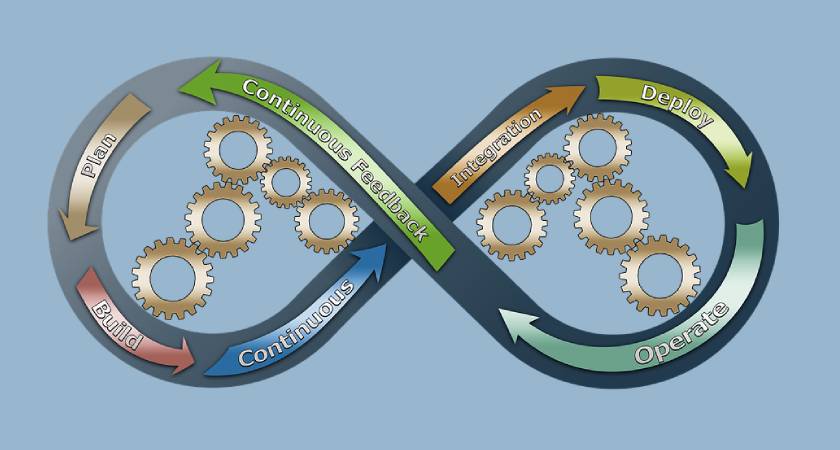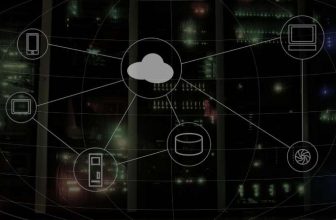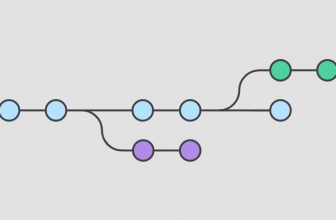
Here at SkillComplete, our DevOps expert team has consolidated a list of the Best DevOps courses, tutorials, training, certifications, and classes for you. Our team of experienced developers and technical enthusiasts has conducted thorough research of all the available online courses of DevOps on the leading online learning platforms such as Udemy, Coursera, Edx, Linkedin learning, and consolidated the Best DevOps courses, and included free resources to help you in your learning journey. Previously, we have consolidated the best AWS and Azure courses. The listed programs are suitable for beginners, intermediate, and advanced developers. The DevOps culture is universally adopted by software organizations globally, and professionals with DevOps certification can bag high-paying jobs in the industry. First, let us look at a brief introduction to DevOps.
The term DevOps is a combination of technical terms – Development and Operations and broadly defined as a philosophy that represents better collaboration and communication among different teams in an organization. Therefore, DevOps is perceived to be a collection of methodologies, tools, practices, and cultural philosophies. This methodology is adopted to integrate and automate the processes between software and IT teams throughout the product lifecycle to improve the quality and speed of software development. The DevOps integrated teams use tools to speed up and automate the processes. The result is improved efficiency and reliability. A DevOps toolchain team includes DevOps fundamentals such as Continuous Integration(CI), Continuous Delivery(CD), Automation, and Collaboration.
DevOps Lifecycle:
- Planning – DevOps teams include an Agile planning approach to improve the speed of delivery. In the Agile development lifecycle, the work divides into smaller pieces known as Sprints to deliver incremental value.
- Building – DevOps employs Git as a versioning tool to manage development code. Git is an open-source version control system that supports branching, merging, and rewriting repository history.
- Continuous Integration and Delivery – CI/CD allows generating automated workflows, and teams can deliver the products frequently and controllably. The development team can merge code changes easily, deploy features, and perform end-to-end testing.
- Monitor and Alert – Issues that impact the application’s uptime, speed, and functionality, can be quickly and efficiently identified and resolved. Automated triggers can be set up to notify your teams of high-risk actions or failures to reduce the downtime of your applications.
- Operate – Operations include the ITSM – IT service management; The management of the IT infrastructure that ensures end-to-end delivery in an organization. This process includes all the operations and activities to design, create, deliver, and support IT services.
- Continuous Feedback – DevOps teams must analyze each release and construct reports to improve future releases. Gathering customer feedback can help improvise the services by incorporating the advice into upcoming releases.
The DevOps tools include Jira Software, Jira Service Management, Bitbucket, Opsginie, Jira Service Desk, and Confluence. These tools address and empower each phase of the DevOps lifecycle. The benefits of DevOps include quicker and easier releases, increased group efficiency and safety, higher grade products, and therefore happier teams and customers. Let us now take a look at the Best DevOps courses.
Best DevOps courses and tutorials online:
DevOps Beginners to Advanced | Decoding DevOps with Projects – Udemy
If you are an absolute beginner who wants to get started with DevOps, this course is for you! DevOps offers a wide variety of tools and technologies, and it has become quite confusing to choose the right ones according to your requirement. The tutor starts from the absolute beginning and discusses the basics of command-line, Scripting, and deep dives into various technologies of DevOps and how they work together.
Key Points :
- You will learn DevOps from total scratch.
- You will get familiar with Linux, AWS, Bash & Python Scripting, Jenkins, Ansible, Docker, Kubernetes, Cloudformation, Terraform & much more.
- You will understand how various technologies work together in DevOps.
- You will gain a firm understanding of DevOps Processes, Tools & Technologies.
Pre-requisites: No prior understanding of DevOps or cloud is required.
Duration: 45.5 hours | Level: All Levels | Access: Lifetime | Certificate: Certificate of completion
DevOps: CI/CD with Jenkins Nexus Ansible Docker Terraform – Udemy
This DevOps training offers a blend of DevOps CI/CD and IaC to give you a perfect end-to-end holistic picture. Each concept is explained in detail using real-world projects and examples. This tutorial is composed of three sections. In the first one, the tutor provides his own virtual data center in AWS using Infrastructure as Code with the help of Terraform. In the second one, the tutor will help you configure the DevOps toolchain: Git for Version Control(VCS), GitHub for SCM (Source Code Management), Maven as a build tool, Jenkins as a continuous integration tool, Nexus as repository manager, Sonarqube for static code analysis, Ansible for build and configuration management, Apache tomcat and Docker to host our web application. In the third section, you will learn PaC (Pipeline as Code), write a Jenkinsfile from scratch, creating a pipeline job(CI/CD) using all the afore-mentioned DevOps toolchains step by step.
Key points :
- This course is 100% Hands-on with Real-world examples.
- You will learn to create Pipeline as Code (Pac) using Jenkinsfile from scratch.
- You will learn to provision your own virtual data center using Terraform(IaC) on AWS to host the DevOps toolchain.
- You will learn how to create CI/CD pipeline using Git, GitHub, Jenkins, Nexus, Sonarqube, Ansible, and Docker.
- You will find quizzes to test your skills along the way.
Pre-requisites: Fundamental knowledge of Git, Maven, Jenkins, Docker, Ansible, Terraform, and AWS is preferred.
Duration: 9.5 hours | Level: All levels | Access: Lifetime | Certificate: Certificate of completion
DevOps: CI/CD with Jenkins using Pipelines: Complete Tutorial – Udemy
This course provides you with the complete detail of continuous integration and continuous delivery. The tutor will guide you about setting up your CI environment by installing and configuring Jenkins master/nodes, introducing the main parts of the tool, and effectively configuring Jenkins projects to build and test software applications. You will learn how automation works for database scripts by adding a new stage to your pipeline for database migration. By the end of this video course, you will be well versed in the concepts of Jenkins and will be able to configure Jenkins effectively to build, test, and deploy your application.
Key points :
- You will conquer the art of Jenkins management by adding a build node, security, and plugin management.
- You will work with automated builds of Jenkins like freestyle project, Git, scheduled-builds, and up/downstream jobs.
- You will get exposure to the fundamental concepts of DevOps and the continuous delivery pipeline.
- You will work with Docker containers in a Jenkins context.
- You will learn to configure Jenkins effectively to build, test, and deploy your software using JenkinsFile.
- You will understand Agile tests and implement them in the delivery process.
- You will implement an effective branching strategy with continuous feedback on feature branches.
Pre-requisites: Basic understanding of the software development life cycle (SDLC) and Java development is preferred.
Duration: 7 hours | Level: Beginner | Access: Lifetime | Certificate: Certificate of completion
DevOps Foundations: Software Development Optimization – Edx
Edx has collaborated with Anáhuac University to create this DevOps training. The course starts with teaching the fundamentals of Linux & Unix to learn command-line management. Familiarize yourself with Git and GitHub, and learn about the basic the pillars of DevOps like Continuous Integration/Continuous Deployment, the transition in systems management with Infrastructure as Code, and the creation of containers to test the CI/CD pipeline. Learn the tools that enable you to develop quality infrastructure from code and implement a process of continuous integration and continuous delivery.
Key points :
- You will develop an understanding of the advantages of automating processes in software development.
- You will learn the implementation of continuous integration and continuous delivery methodologies (CI/CD).
- You will learn to create applications in containers.
- You will learn to design, deploy, and maintain the automation process in software development.
- You will learn to create a secure, reliable, and production-ready product in an Agile environment.
- You will understand the DevOps security and testing fundamentals.
Pre-requisites: Basic understanding of the software development life cycle (SDLC) and Java development is preferred.
Duration: Self-paced | Level: Beginner | Access: Lifetime | Certificate: Certificate of completion
Introduction to DevOps – Coursera
This course explores DevOps as a cultural motion, including building a business case of DevOps, its essentials, and a brief history. You will learn to view DevOps from a business and a DevOps practitioner’s perspective and create an infrastructure for Continuous Integration and Continuous Delivery. You will be able to use actionable measures that apply directly to decision-making and ultimately result in continuous improvement.
Key points :
- You will learn the essential characteristics of DevOps that include building a culture of shared responsibility, transparency, and embracing failure.
- You will understand the importance of Continuous Integration and Continuous Delivery, Infrastructure as Code, Test Driven Development, BehaviorDriven Development.
- You will learn the essential DevOps concepts: software engineering practices, cloud-native microservices, automated Continuous Deployments, and building resilient code.
- You will understand the organizational impact of DevOps, including breaking down silos, working in cross-functional teams, and sharing responsibilities.
Pre-requisites: No prior knowledge of DevOps is required.
Duration: 6 hours | Level: Beginner | Access: Lifetime | Certificate: Certificate of completion
DevOps Foundations: Development and operations – LinkedIn Learning
This course provides an overview of the DevOps movement, focusing on the core value of CAMS (culture, automation, measurement, and sharing). The tutor covers the various methodologies and tools an organization can adopt to transition into DevOps. The tutor teaches agile and lean project management principles and how conventional practices like ITIL, ITSM, and SDLC conform within DevOps. This course includes information on the three pillars of DevOps—infrastructure automation, continuous delivery, and reliability engineering.
Key points :
- You will learn about the requirement of DevOps.
- You will understand the core values and principles of DevOps.
- You will learn to choose DevOps tools.
- You will learn to create a positive DevOps culture.
- You will understand agile and lean.
- You will learn to build a continuous delivery pipeline and reliable systems.
Pre-requisites: No prior knowledge of DevOps is required.
Duration: 3 hours | Level: Beginner | Access: Lifetime | Certificate: Certificate of completion
Continuous Delivery & DevOps – Coursera
This online learning tutorial targets beginner DevOps engineers. This class introduces you to the skill sets and roles involved in DevOps and how they ensure continuous delivery. The tutor explains the primary jobs of system operations and reviews and delivers the automation tests.
Key points :
- You will learn to analyze a delivery pipeline and provide recommendations to improve it.
- You will acquire the skill sets and roles involved in DevOps and learn how they contribute to a continuous delivery system.
- You will learn to review and deliver automation tests across the development stack.
- You will learn to facilitate prioritized, iterative team progress on improving a delivery pipeline.
Pre-requisites: No prior knowledge of DevOps is required.
Duration: 8 hours | Level: Beginner | Access: Lifetime | Certificate: Certificate of completion
DevOps Tools and AWS for Java Microservice Developers – Udemy
For every DevOps engineer out there, the knowledge of Cloud like AWS and experience with DevOps tools like Docker, Kubernetes, Jenkins is a must. This class offers an all-in-one learning path where you can master all the DevOps tools and some of the AWS services to make your applications Continuous Deployed and Production ready.
Key Points :
- You will learn the concepts of cloud, continuous delivery, and DevOps all in one place.
- You will then be introduced to AWS and learn to set up your AWS Cloud account, launch AWS instances, and learn a few basic Linux commands.
- You will learn how to install and use GIT and perform operations on remote Git Repositories.
- You will also learn to resolve code conflicts, branching, and more.
- You will master all the fundamentals of Maven and create and build standalone java web applications.
- You will then create two micro service projects using spring boot.
- You will deploy and test your Micro Service applications manually to AWS by setting up java, MySQL on an EC2 Instance on the cloud.
- You will learn to use AWS Elastic bean Stalk service to deploy your applications.
- You will learn to use EBS with RDS (Relational Database Service) to deploy and test your microservices.
- You will use various docker commands to pull images and launch containers, mount volumes, and work with docker networks.
- You will use Visual Studio Code IDE to create your Docker File and use Docker-Compose to launch multiple docker containers simultaneously.
- You will learn about Kubernetes and various components in the Kubernetes cluster.
- You will set up Minikube to explore the Kubernetes cluster on your machine.
- You will learn about technological terminologies such as IAM, Auto Scaling, Elastic Load Balancer, and Cloud Watch.
- You will learn to use Jenkins to configure your project builds, webhooks, pipelines and automate the complete deployment process.
- You will learn Ansible, which is a configuration management tool for DevOps.
Pre-requisites: No prior knowledge of DevOps is required.
Duration: 20.5 hours | Level: All levels | Access: Lifetime | Certificate: Certificate of completion
Introduction to DevOps and Site Reliability Engineering – Edx
If you are a manager looking for guidelines on transforming your organization and understand where to start, this course is for you.
By the end of this course, you will have a deep understanding of the foundation, principles, and practices of DevOps and Site Reliability Engineering.
Key points :
- You will learn how DevOps influences software delivery and its significance for IT operations professionals to skill up with DevOps practices.
- You will learn how Cloud Computing has enabled organizations to build and deploy applications rapidly and expand capacity.
- You will learn how the open container ecosystem is revolutionizing software delivery with the help of Kubernetes.
- You will learn about Infrastructure as a Code and Continuous Integration in software delivery.
- You will learn about Continuous Deployment and Continuous Delivery.
Pre-requisites: Knowledge of Linux systems and Scripting is required.
Duration: Self-paced | Level: Beginner | Access: Lifetime | Certificate: Certificate of completion
DevOps Foundations: Your First Project – LinkedIn Learning
If you are a novice looking to put DevOps principles into practice, this course is for you! The tutor demonstrates the application of DevOps principles to a sample app for a make-believe travel booking firm. He will demonstrate how to containerize the website with Docker and Docker-Compose, write unit and integration tests with RSpec, Capybara, and Selenium. At last, he will teach how to deploy your website into the cloud with Terraform and write a Jenkinsfile to build, test, and deploy your application.
Key points :
- You will learn to write your first Dockerfile.
- You will learn to use Docker-Compose and write Terraform code.
- You will learn to test your app using RSpec, Capybara, and Selenium.
- You will learn to deploy your website into the AWS S3 bucket.
- You will learn to write and run integration tests.
- You will learn to write a CI/CD pipeline with Jenkins.
Pre-requisites: No prior knowledge of DevOps is required.
Duration: 3.5 hours | Level: Beginner | Access: Lifetime | Certificate: Certificate of completion
DevOps Projects | 20 Real-Time DevOps Projects – Udemy
What’s a better way to learn than to create applications using your DevOps skills. You will learn to apply your gained skills in practical DevOps projects. This approach will help you prepare for the interview questions regarding real-time DevOps scenarios and learn end-to-end automation solutions.
Key points :
- You will gain experience in DevOps project set up from scratch.
- You will learn the complete DevOps Lifecycle.
- You will understand highly complex CICD pipelines, and master your automation skills.
- You will learn real-time scenarios to gain confidence for the DevOps interview questions.
- You will develop a problem-solving mindset.
Pre-requisites: Prior knowledge of DevOps is required.
Duration: 36.5 hours | Level: Intermediate | Access: Lifetime | Certificate: Certificate of completion
Conclusion
That’s all about the best DevOps courses online. Agile practices are revolutionizing the development world hence, global organizations are seeking faster deployments and reliable operational practices. The DevOps culture and practice provides a way to adopt an Agile methodology resulting in faster and more reliable software delivery. DevOps skills are in high demand, and DevOps jobs are among the highest-paid tech jobs. Therefore, learning DevOps is a must. We hope the above list of the best Kubernetes courses helps you in your learning journey. You may also want to check our list of best Docker, Kubernetes and Microservices courses.
Thanks for reading this article. If you found the list useful, share it with your friends and colleagues. In case you have any questions or feedback, please feel free to drop a note.
Happy learning!



![Best Jenkins Courses Online – Updated [February 2026]](https://skillcomplete.com/wp-content/uploads/2022/01/jenkins-blog-1-336x220.jpg)